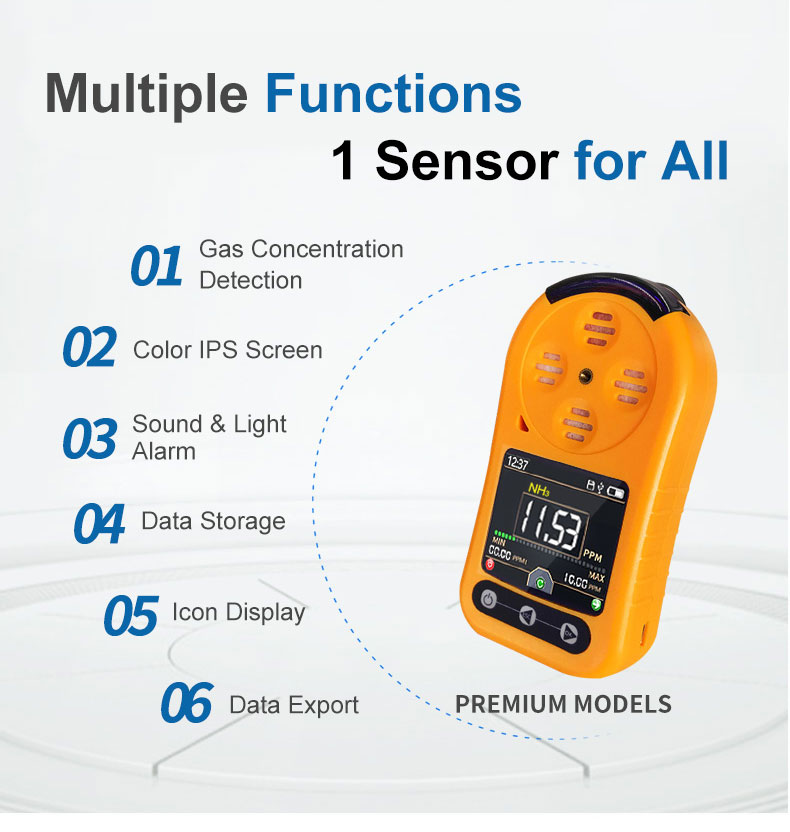The presence of flammable gases poses a significant hazard to the facility. To mitigate these dangers, flammable gas detector are an essential tool. This article will explore the benefits and applications of using a flammable gas detector to ensure safety in hazardous environments.
Benefits of Flammable Gas Detector

Early detection of flammable gases:
A flammable gas detector is specifically detect the presence of gases that are highly combustible. It provides early warning when gas concentrations exceed safe levels. This makes before potential explosion take active measures to prevent the explosion.
Continuous monitoring: Flammable gas detectors offer continuous monitoring of gas levels in the environment. They provide real-time readings of gas concentrations, allowing immediate response to dangerous situations. With visual and audible alarms, these detectors alert users when gas levels reach critical thresholds, enabling prompt action to evacuate, isolate the area, or initiate safety protocols.
Versatility and adaptability: Flammable gas detectors can be used in various settings and are suitable for different types of flammable gases. They are capable of detecting gases such as methane, propane, butane, hydrogen, and more. This versatility ensures that workers can rely on a single device to monitor the presence of multiple flammable gases.
Applications of Flammable Gas Detector
Industrial workplaces: Flammable gas detectors are extensively used in industrial settings where flammable gases are present. Industries such as oil and gas, chemical production, manufacturing, and construction greatly benefit from these detectors. They help maintain a safe working environment by continuously monitoring gas levels and triggering alarms when necessary. This empowers workers to take immediate action and prevent potential accidents and catastrophic events.
Warehouses and storage facilities: A warehouse storing flammable goods is prone to fire hazards. Flammable gas detectors ensure early detection of gas leaks and prevent accidents that could lead to property damage.
Laboratories: Research laboratories often handle flammable substances as part of their experiments and processes. Flammable gas detectors play a critical role in ensuring the safety of laboratory personnel by detecting gas leaks and enabling swift action to prevent accidents and chemical reactions.
Commercial buildings and residential homes: Flammable gas detectors are also valuable in commercial buildings and residential homes that use natural gas or propane for heating, cooking, or other purposes. These detectors provide an added layer of safety by detecting gas leaks and triggering alarms to protect occupants from potential gas-related incidents.
Conclusion
A flammable gas detector plays a vital role in ensuring safety in hazardous environments. With their ability to detect flammable gases early and provide continuous monitoring, they help mitigate the risks of fires and explosions. Whether in industrial workplaces, warehouses, laboratories, or residential settings, flammable gas detectors provide critical information to prompt necessary actions and prevent accidents. Investing in and utilizing flammable gas detectors is crucial for creating a safer environment and protecting the well-being of individuals and assets from the dangers associated with flammable gases.